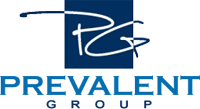If you leave an interview knowing in your heart that you want the job, and that you’re the right person for that job, your very next step must be to sit down and craft a thank you letter. When your future is on the line, you want to make sure you take every chance you can to make a positive impression on the hiring team. Once the field has been narrowed to the final few candidates, the team will look closely at the way each candidate performed throughout each step of the process. You won’t want to be the only person on the short list who didn’t send a thank you letter.
Thank You Letter Basics
Some career gurus will tell you to write a handwritten note, but there is nothing wrong with sending an email. Cards and letters can make an impression, but timing is also important when it comes to thanking your interviewers for meeting with you. When it comes to a thank you letter, the message is far more important than the medium.
Use your thank you letter as a way to reinforce the fact that your skills and experience are a great match for the position. You can also use your thank you letter to include something you may have forgotten to mention in the interview.
Send the letter as soon as possible, and try not to let more than 24 hours pass after the interview. Some candidates keep thank you notes in the car, and write them as soon as they leave the interview, while others make it a point to sit down and craft an email as soon as they get home. Whatever you do, remember that time is of the essence. If you wait too long, it shows a lack of interest in the position, and your letter will seem like an afterthought.
Sample Thank You Letter
Every thank you letter you send should be original, but if you’re looking for a starting point, here is a guide to get you started:
Your Name
Your Address
Your City, State, Zip Code
Your Phone Number
Your Email
Date
Interviewer’s Full Name
Title
Organization
Address
City, State, Zip Code
Dear Mr./Ms. Last Name:
Use the first paragraph to sincerely thank the interviewer for his or her time. Reinforce your interest in the job and express your enthusiasm for the position and the organization.
The second paragraph should remind the interviewer of the unique qualifications that make you an ideal candidate. Be sure to list specific skills that are relevant to the position.
The third paragraph can be a good place to mention anything you may have forgotten to say in the interview. Keep it brief, however.
In your closing, thank the interviewer once again for their consideration and let them know you are looking forward to hearing from him or her.
Sincerely,
Your Name
If you a job seeker looking to take the next step in your career, the recruiting team at The Prevalent Group would love to talk to you. We are always seeking relationships with experienced professionals who have the skills and the ability to deliver results for our diverse group of client companies. As a nationally recognized management and executive placement recruitment company, we place executives in sales, marketing, engineering, technology and more. If you are looking for new opportunities in these fields, visit our job board to scan our current openings, and then contact us to learn more. We look forward to connecting you with your next job.
